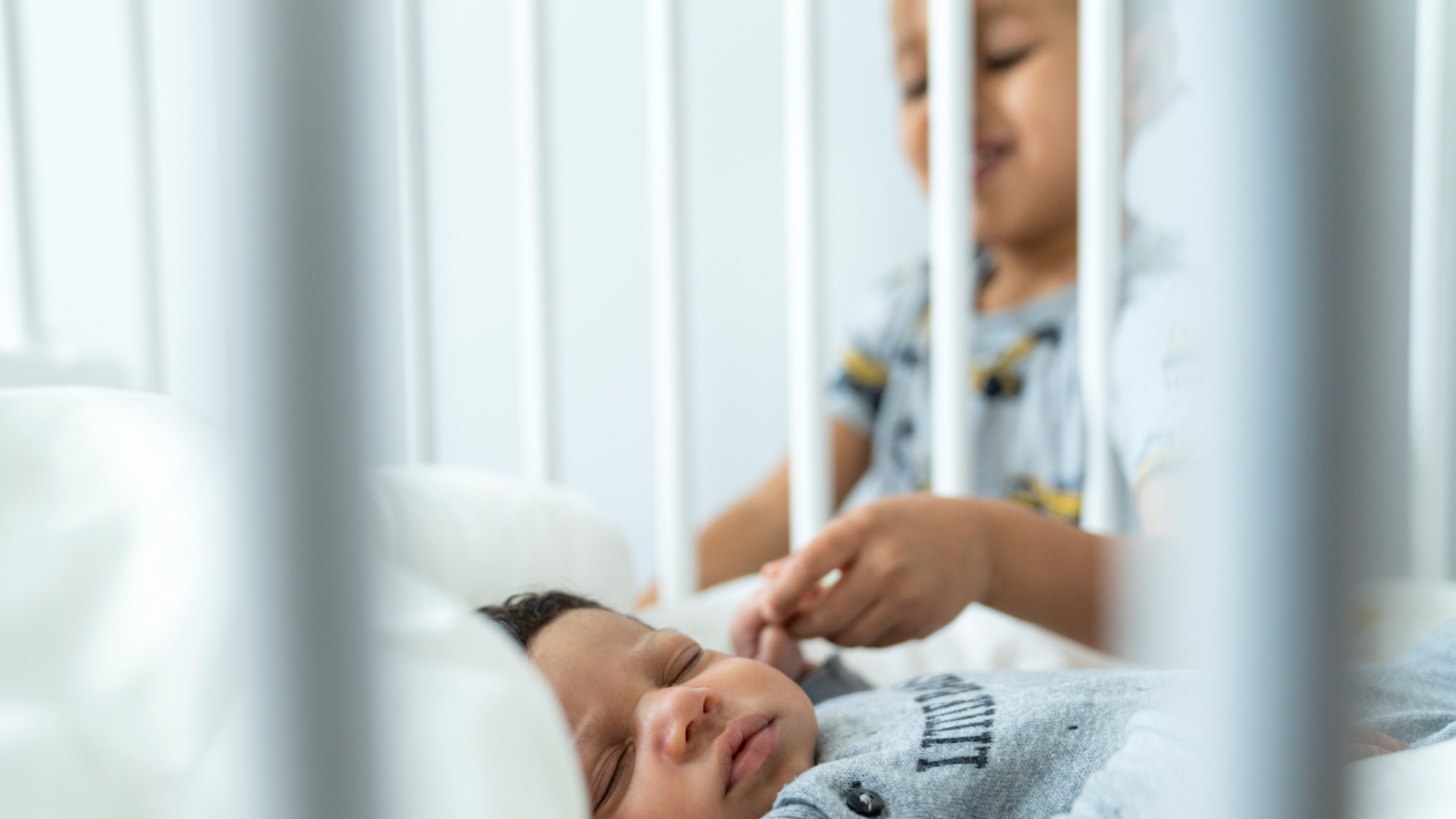
Teaching children to share is vital at a young age. However, a new study is finding that having children share bedrooms could actually be cause them to miss out on sleep. How much sleep exactly? 28 minutes. Although that doesn't seem like a significant amount, the extra time could actually be worth it. Continue reading to learn more about the benefit of children sleeping in their own bedrooms.
The effect of sharing on sleep
A new survey conducted by the Sleep Foundation found that children share bedrooms in 70.4% of households with two more children. Up to 34.9% of children under 17 already don't get the recommended amount of sleep, and the factor of another person in the room may play a role.
Children who sleep in their own rooms get, on average, 28 more minutes of sleep compared to those who share in households with a combined income of $50,000 or less.
It is recommended that all age groups sleep for around 8 hours, with children needing more sleep than adults. Children who share bedrooms slept about 7 hours and 39 minutes compared to 8 hours and 16 minutes in the solo group.
However, sharing is not all bad. Shared bedrooms are often a financial necessity and may offer benefits outside of sleep quantity. Parents must be aware of how sharing a room impacts children, and what they can do to minimize disruptions.
How bedrooms impact classroom behavior
One of the major concerns for school-aged parents is school. Once children are at the age where they start school, a lack of sleep can impair brain function, change brain structure, and negatively impact mental health.
Memories and learning happen during sleep when the brain starts to consolidate all that they have learned throughout the day. Long stretches of consistent sleep are vital for kids birth to five years old.
Sleep environments may play a role in this. For some parents, individual bedrooms led to more sleep, but for kids who share rooms, 64.6% of parents said their kids were well-rested while only 28.1% said their children were tired during the day.
In the classroom, this translates to slightly improved grades for those who sleep well, especially those who had their own bedrooms.
Benefits of sharing bedrooms
Sharing a bedroom is often dictated by space and financial flexibility. However, there are benefits of sharing bedroom, especially companionship. Sharing a bedroom means that kids have another person to talk to in their room and have another comfortable body in the room if they wake in the middle of the night. Parents can also use a spare room for a playroom or somewhere to separate sleeping from play.
Children can have different sleep schedules and needs, but if the parent manages this well, then those issues can be mitigated. A majority of children wake up within an hour of one another, so sleep disturbances of one often do not impact the other.
There are also emotional benefits to children sharing room. Children who share rooms often social and get along better. Over 75% of parents agreed that sharing a room helped this children comfort one another.
How kids can sleep more and better in the same room
Sharing room is a long-standing practice, with more than 60% of respondents saying they shared rooms growing up.
There are ways to overcome sleep challenges with sharing a room, especially by establishing a good sleep hygiene. There are five things that parents can do to help maximize sleep if their children are sharing rooms.
Going dark is important as light can disrupt sleep. Blackout curtains and sleeping masks are the best ways to make this happen. Nightlights and clocks that turn on when it's time to wake up are fun and don't disrupt sleep throughout the night. It can also signal to children that it's time to wake up.
Setting ground rules helps children understand your expectations around bedtime. Sometimes they want to stay up talking and playing, or they can even wake their roommate up throughout the night. Instructing them that this is not okay is vital.
Utilize white noise to block out distracting sounds and help kids stay and fall asleep. You can wean children off of them after they learn to sleep through the night for one or two months. This way they learn to sleep through noise and distractions when their outside the homes.
Getting them cozy with stuffed animals and similar toys that kids can associate with sleep is a great way to help children fall asleep. Let them choose a toy or stuffed animal they can take with them to bed that they are not allowed to play with outside of sleep time.
Be flexible and expect change. Kids' sleep needs are going to change, and as they get older, they are going to want to stay up later.
If you are concerned that your children are not sleeping well, and they have to, or you want them to share a room, then please click the orange button below to take a free online sleep test and talk with one of our sleep health professionals.
https://www.sleepfoundation.org/sleep-news/kids-who-do-not-share-bedrooms-get-more-sleep

